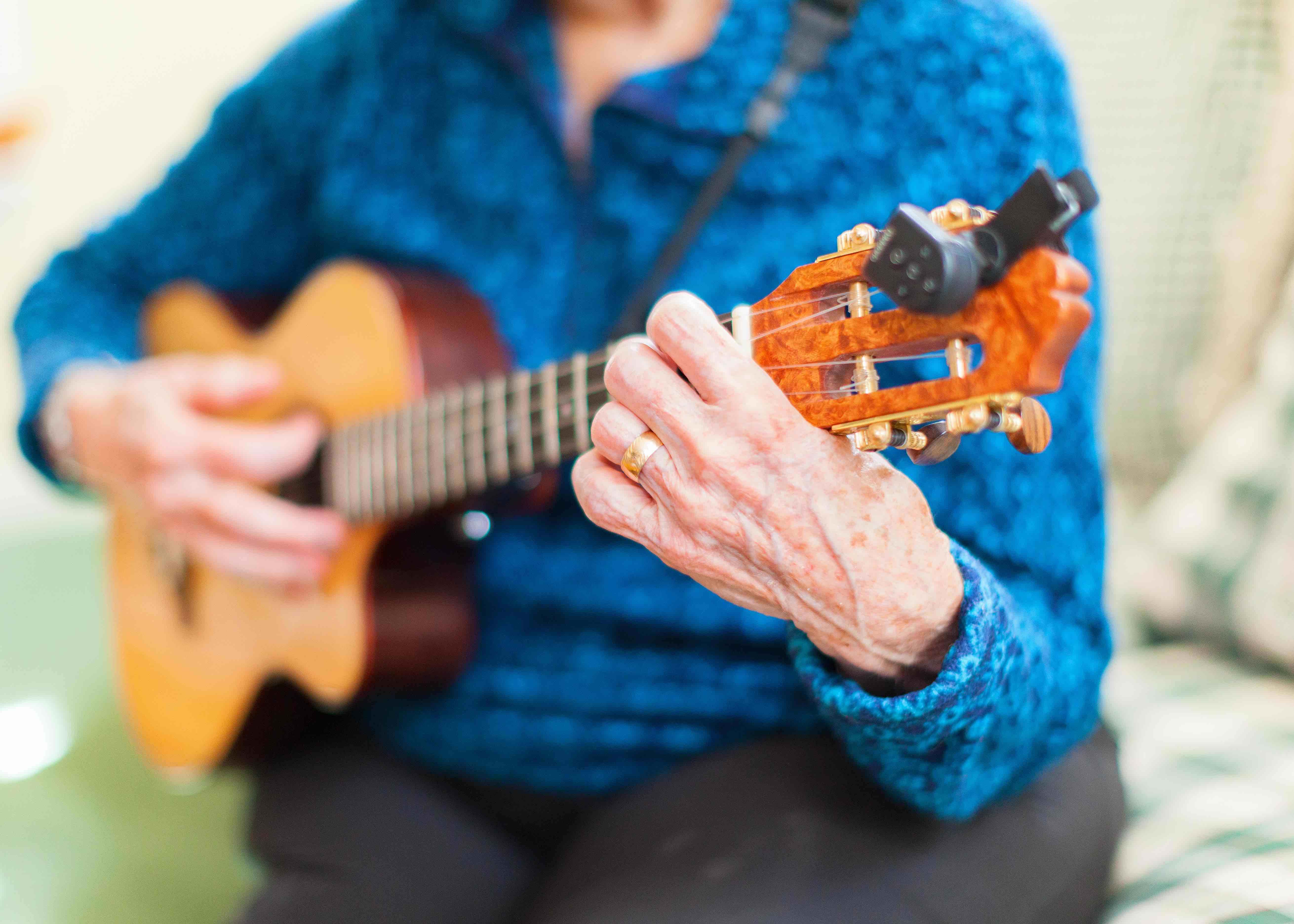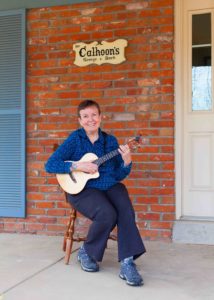Music: A Total Brain Workout | by

"Music hath charms to soothe a savage breast to soften rocks, or bend a knotted oak.” The late-17th- century poet and playwright William Congreve had it right. But music — especially playing music — is good for the brain, too.
In a sense, it’s a total brain workout. Music engages the whole brain because it is “structural, mathematical, and architectural,” according to a Johns Hopkins otolaryngologist.
Barbara Calhoon, 73, learned to play a musical instrument for the first time at age 70. She and her husband spent a year and a half in Hawaii as volunteers in veterinary services when she discovered what the ukulele could do. Although she didn’t care for Hawaiian music, she heard professional ukulele musician Jake Shimabukuro demonstrate the complex capacity of the seemingly simple instrument in his masterful rendition of “Bohemian Rhapsody.” She got hooked.

“Learning to play a musical instrument is like solving a puzzle,” Calhoon says, “putting pieces together to make a whole.” As a former medical technologist, Calhoon knows puzzles. “I have osteoarthritis in my fingers, so playing the ukulele also provides exercise that’s fun,” she says. “And my brain, of course, sends messages to my hands.”
Learning to play a musical instrument requires cognitive activity. “When you’re starting from zero,” Calhoon says, “it’s like learning a foreign language.” Older students have a bit more of a challenge. Younger players move much faster. We have to push ourselves harder.”
“You’re never too old to learn something new.”
Barbara Calhoon
Casey Cormier, a teacher at Swallow Hill Music in Denver, has taught students ages 6 to 96, including Calhoon. He enjoys working with older students, because of their attitude and approach.
“They’re the students who aren’t feeling obligated,” Cormier says. “Many are retired, so they can finally make the time to do what they’ve wanted to do.”
How Does It Work?
Just ask Emily Grant, a music therapist at The Medical Center of Aurora’s Behavioral Health Services center. Grant works with patients combatting depression, dementia and other mental health issues.
“It’s about brain plasticity,” Grant says. “Playing an instrument activates the entire brain. Visual input, tactile input, fine motor coordination, memory, visual processing and sequencing skills are necessary to play even a simple piece on a piano.”

The brain’s corpus callosum, Grant explains, “connects the brain’s two hemispheres to coordinate motor skills, convey the emotional message of the music, remember the notes, and process all the sensory information coming back, such as playing in tune, at the right volume, and at the right tempo. Music exercises our brain in an appealing and enjoyable way.”
It’s Good for Older Adults
“As we age, we tend to rely on habits and information we already have, without challenging our brains,” Grant says. “And it’s effective for degenerating brains because we have more avenues to access stored information.”
Although there is no way to prevent or stop the progression of dementia, Grant says, “Engaging in music by listening, singing, or playing an instrument can help strengthen auditory and motor neural networks, which facilitates performing other tasks that use those same networks. That helps maintain function despite the disease progression.”
All of this is why, Calhoon says, “You’re never too old to learn something new.”
Comments
Leave a Comment
Please be respectful while leaving comments. All comments are subject to removal by the moderator.

Such a great article! And so true. Music has helped me since I was very small. I have been playing guitar since Jr High school. Not only did it help with memorization and motor skills, playing most definitly increased my self confidence and introduced me to a whole new group of friends that I may not have met otherwise. I will be sharing this article with a rousing endorsement. Very well said!
Music is certainly the best remedy for depression. I have gone through serious depression issues after personal setbacks, I was a piano player before and I can say that being a pianist and a music lover helped me recover from mental health issues. Anyways those toughs days are gone, these days I just love hearing music, I go out to play, I teach kids the piano, I write my own blog, I read a lot. Music kinda changed my whole life.
~ Larry